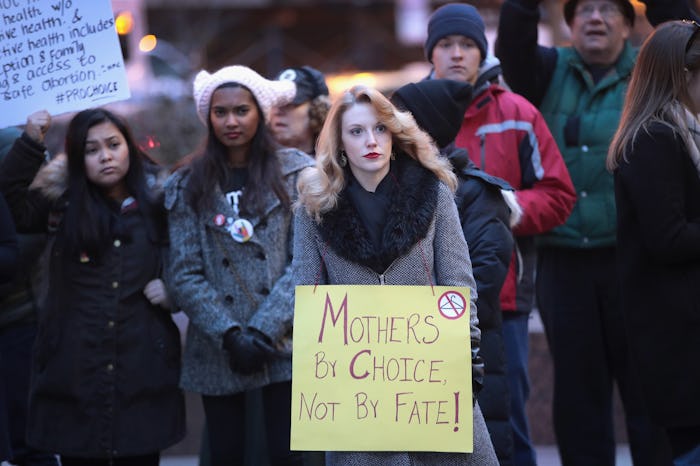News

Women Choose More Effective Birth Control When Cost Isn’t A Factor, Study Finds
Women use birth control for more than just its intended purposes. Birth Control is not only used for family planning but for keeping hormones in balance, used to control periods, and PMS side effects — but not everyone has access to it. It is a shame that not every woman has a choice when it comes to this, especially since, according to a new study, women choose more effective birth control when cost isn't a factor. This only goes to show how important fair and equal access to birth control really is.
When women have a choice when it comes to their birth control, they're more than likely to pick the most effective option, according to a new study conducted by the University of Utah and published in the American Journal of Public Health, according to ABC News. However, cost prohibits and limits women's access to this effective birth control thus them choosing something else.
The study provided women with both comprehensive education about the birth control options, according to the study's press release, and allowed them no-cost, same day access to birth control that they could change at any point over the course of three years. When women knew about their contraception options, the study found, they were more likely to go for the most effective, safest method (IUD or other implant methods, according to ABC News) rather than other methods.
If this isn't an argument for fair and equal access to birth control, then I don't know what is.
Jessica Sanders, first author of the study and research assistant professor in Obstetrics and Gynecology at University of Utah Health explained, according to a press release for the study:
When you remove cost as a factor, people are more likely to select effective contraception methods that are often the most expensive up front. When we added education and outreach to the picture, we saw an increase in demand for these methods.
How much do IUD's and implants cost? A lot, depending on your access to insurance. Without insurance, according to TIME, an IUD can cost up to $900 and could cost up to $1,000 if insurance plans no longer cover them. An implant, like Nexplanon, can cost up to $1,300, according to Planned Parenthood. Under President Obama, women had to pay 3 percent of the cost out of pocket, as opposed to 21 percent before the Affordable Care Act went into effect, according to CNN.
But in October, President Trump allowed it to be easier for businesses and organizations to drop coverage of contraception for religious reasons, according to CNN, thus making the access to affordable birth control a lot harder. When women have access to birth control, this makes family planning — or being able to choose and control when they have kids — a lot easier. Family planning is something that the Trump administration wants to address, according to Politico, but the administration wants to put an emphasis on "abstinence and natural family planning" rather than continue to allow fair, equal, and cheap access to birth control.
With this new study's findings, it doesn't make sense why the Trump administration wouldn't continue this accessible coverage to birth control, especially since the birth control implant is 99 percent effective at preventing pregnancy, according to Planned Parenthood.
But as the study found, not many people may know that IUD and implant birth control devices are the most effective method of birth control, according to Health. Especially since birth control pills are the most popular method of birth control and have continued to be since 1982, according to a 2012 study conducted by the Guttmacher Institute and four out of every five "sexually experienced women" have used the pill, according to a 2013 report published by the Centers for Disease Control and Prevention.
This is why the study's findings are so important. Not only did women choose the best option for them, but its not a coincidence that it was the most effective one for them, too. This only highlights the importance of access and education to birth control across all incomes.